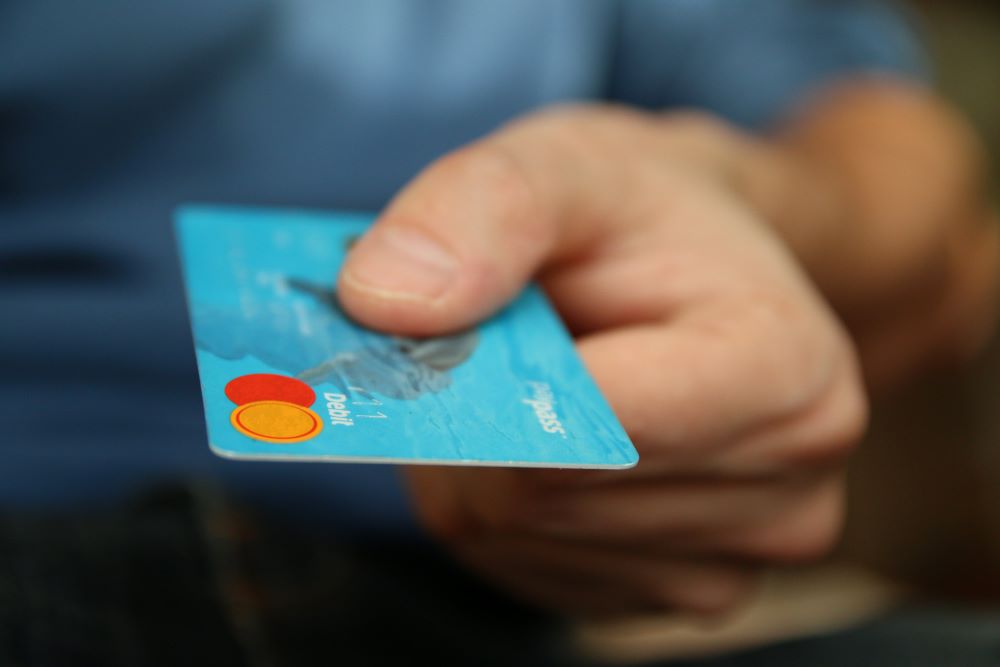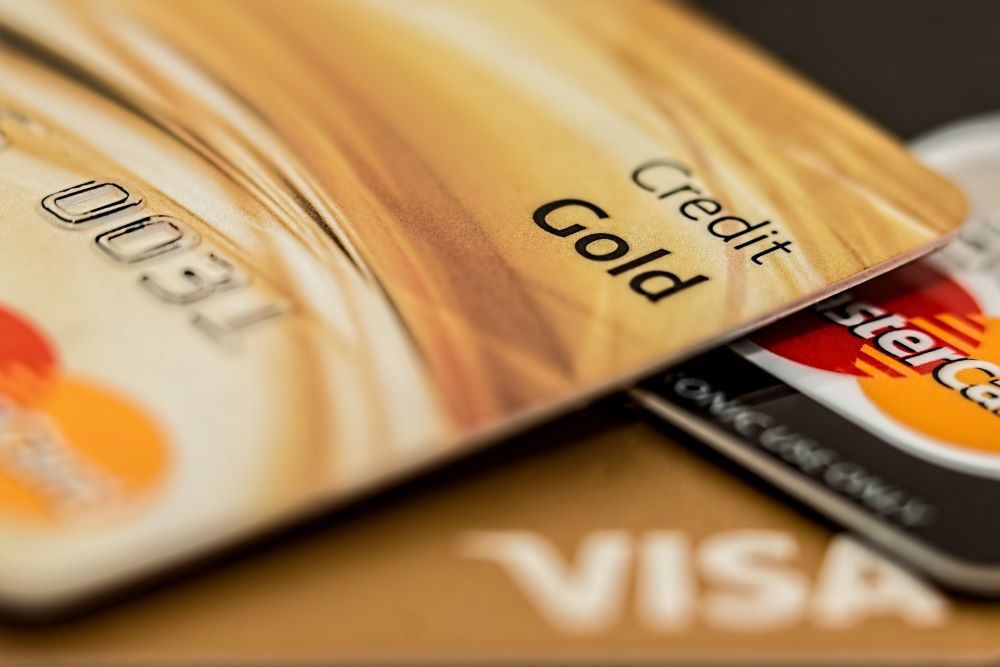Your credit score is a number that rates your creditworthiness. This score is based on your credit report, which is made up of your borrowing history.
Despite being important to most people's finances, there are a lot of questions about credit scores. Many people are unclear about what goes into a credit score or how a credit check works.
Your credit score will tell any potential lender how much of a risk they’ll be taking by lending you money. If you’ve proven yourself to be responsible with your borrowing, you’ll be deemed lower risk.
Put simply, more creditworthy people will be able to borrow more credit from a wider range of lenders, at better rates. Less creditworthy people may struggle to borrow the amount of money they need, have to pay higher interest rates, or not be able to borrow at all.
Keep reading to find out more about how credit scores work, why they matter, and what goes into calculating yours.
The information contained within this article is for editorial purposes only and is a general guide and description of the products listed. Nothing in this article should be relied on as financial advice.
There may be other products available not listed in this article which may be more suitable for your personal needs.
What is a credit score?
A credit score is a numerical rating of how creditworthy you are as an individual. The higher your credit rating is, the better you’ll look to potential lenders. This is because a good credit score indicates that you’re reliable when it comes to managing your money.
Lenders are more likely to want to lend you money if you have a proven history of borrowing and paying back money responsibly. In a nutshell, you’re deemed to be less of a risk.
Your credit score is calculated using a number of different information sources. These include how many open accounts you have, your total debt and your repayment history. We’ll go into more detail on that later.

Why does your credit score matter?
It’s important to understand credit scores and the impact yours can have on your borrowing. With a decent credit score, you’ll be more likely to get approved when you apply for credit cards, loans and other financial products.
Most of us will need to borrow money at some point in our lives, whether we’re taking out a credit card to help pay our monthly bills or applying for a mortgage so we can buy a house.
If you have a bad credit score, you may still be able to get loans to do these things. However, the likelihood of getting a good interest rate or being able to borrow as much money as you need will be lower.
If you pay your bills on time and never default on debt or finance repayments (such as a mobile phone or car loan), you will probably benefit from a broader range of borrowing options, such as better mortgage rates.
Quick definitions:
Credit check/credit search: When a company looks through all the information in your credit report as a means of understanding your financial behaviour.
Credit report: A statement containing information about your credit history and current credit situation.
Credit score: A numerical rating estimating your financial responsibility.
Who checks credit scores?
If you want to rent a property or apply for a mortgage, credit card or loan, the loan provider will always check a copy of your credit report before agreeing to lend you anything.
This isn’t just limited to financial institutions like banks and credit card companies. The people checking credit scores range from services like mail-order companies to anyone providing products on finance, such as mobile phone providers.
What goes into calculating my credit score?
There are five main elements that go towards making up your credit score. All of them are very important but the weighting of each depends on the credit checker you use.
1. Payment history
Your payment history is a record of any credit payments you make, including late and missed payments. These will be kept on your credit report for up to seven years.
Frequent late or missed payments will negatively affect your credit score and may lead to you being refused credit.
2. The amount you currently owe
If you have any current credit agreements, your credit report will take into consideration how much of that available credit you’re using.
If you regularly edge near your credit limit, this suggests you may be stretched when it comes to your finances (whether that’s due to low income, significant outgoings, or both).
This may result in a lender deciding to lend you a lower amount than you may want or need.
3. Length of credit history
In order to improve your credit score, you need to show lenders you’re capable of borrowing money responsibly over a substantial time period.
People who’ve held active credit accounts for a decent length of time and have consistently been borrowing within their means will generally have a higher credit score than those with shorter credit histories.
4. New credit
People who frequently open new credit accounts (or even just make applications for credit where hard credit checks will be done) may sometimes be flagged as unreliable borrowers.
5. Credit mix
Any different types of credit accounts you hold will make up your credit mix. This can include personal loans, student loans, credit cards, mortgages and others.
Generally speaking, a diverse credit mix is a good thing because it shows your ability to responsibly manage different types of credit accounts. As long as you’re consistently making your repayments on time, having a varied credit mix can end up improving your credit rating.

Other things included in your credit report
Other pieces of information included in your credit report are:
- Your name and date of birth.
- Whether you’re on the electoral register or not.
- Your current address and previous addresses.
- The details of anyone you’re financially linked to (such as through shared loans).
- Overdraft information from your current account provider.
- Information about any previous fraud offences you’ve committed.
- Information about any previous occasions where you’ve been a victim of fraud, such as identity fraud (via a CIFAS warning).
Things not included in your credit report
There are some things that won’t be included on your credit report, which means they won’t affect your credit score. These include:
Your current income and length of employment.
Personal details like your race, gender, marital status, qualifications, religion or political views.
Information about any past denied credit applications.
Information about your criminal record.
Information about any benefits you claim, such as universal credit.
Want to find out your credit score? We have a separate guide showing you how to get your free credit report online and how to interpret your result.
Credit score FAQs
 Will checking my credit score affect my score?
Will checking my credit score affect my score?
No, checking your credit score won’t affect your score in any way.
You’re free to check your score online as frequently as you like and your score won’t go up or down as a result. This is because credit checkers use soft checks (rather than hard checks), which don’t appear on your record.
 What’s the difference between soft and hard credit checks?
What’s the difference between soft and hard credit checks?
A soft credit check is only visible to you and not to external companies. This means no lenders will be able to see how many soft checks you’ve had.
Hard credit checks, on the other hand, are credit health checks run by lenders before approving a loan, such as a mortgage (including mortgages for first-time buyers), credit card, mobile contract or car finance loan.
If you have a large number of hard credit checks on your credit file for potential lenders to see, this can negatively affect your chance of being approved for future credit.
This is because too many credit applications in a short space of time will make you appear as though you’re either struggling with managing your personal finances or relying on borrowing money too much.

 Can I earn cashback when I check my credit score?
Can I earn cashback when I check my credit score?
Yes, we often give our members cashback for signing up for a free credit score account with certain credit checkers.
At the time of writing, TopCashback members can earn up to £6 free cashback when they register for a free Experian account.
To qualify, all you need to do is visit Experian’s page on the TopCashback site, click through to their site from ours and then sign up for your Experian account.

We secured this exclusive offer, but our content stays unbiased.
Spend £15+ at eBay, Amazon, ASOS or any of 5,000+ brands to get £15 back

It's really simple: our site takes just 30 seconds when you buy online.
You do the shopping, we'll track your purchase, and then you'll get cashback in your account to withdraw to your bank or as a gift card.
Here's how to get your £15 offer;
- Click: Click the green button
- Join: Create an account
- Shop: Browse brands on our site
- Buy: Click Get Cashback then make a purchase
- Enjoy: We'll add £15 to your account once we track your purchase
How does TopCashback benefit? We make money when you buy from supported brands, which allows us to offer cashback with no hidden fees.
Find out your credit score today
So, now you’re clued up on how credit scores work and what your credit score means for your finances and borrowing prospects. The only thing left is to calculate your credit score.
If you’re not sure where to go to get a free credit score check online, we’re here to help. We have a complete, separate guide talking you through which websites to go to and how to complete the process of getting your credit score and report. Make sure you check it out if you’re not sure where to start.
If you’re having money worries, there are organisations that can help with support and advice. Citizens Advice, National Debtline and StepChange all provide free services, including practical advice to make small positive changes to ease the financial pressure.
The information contained within this article is for editorial purposes only and is a general guide and description of the products listed. Nothing in this article should be relied on as financial advice.
There may be other products available not listed in this article which may be more suitable for your personal needs.
